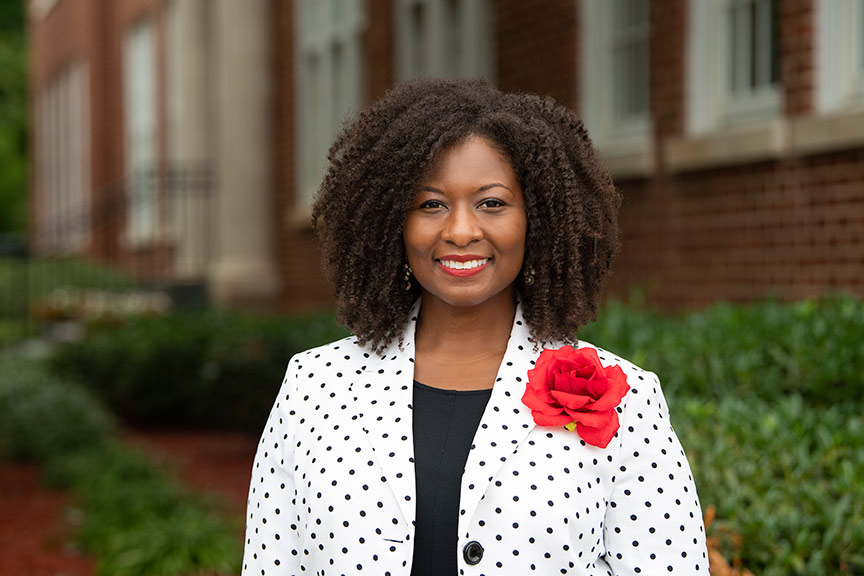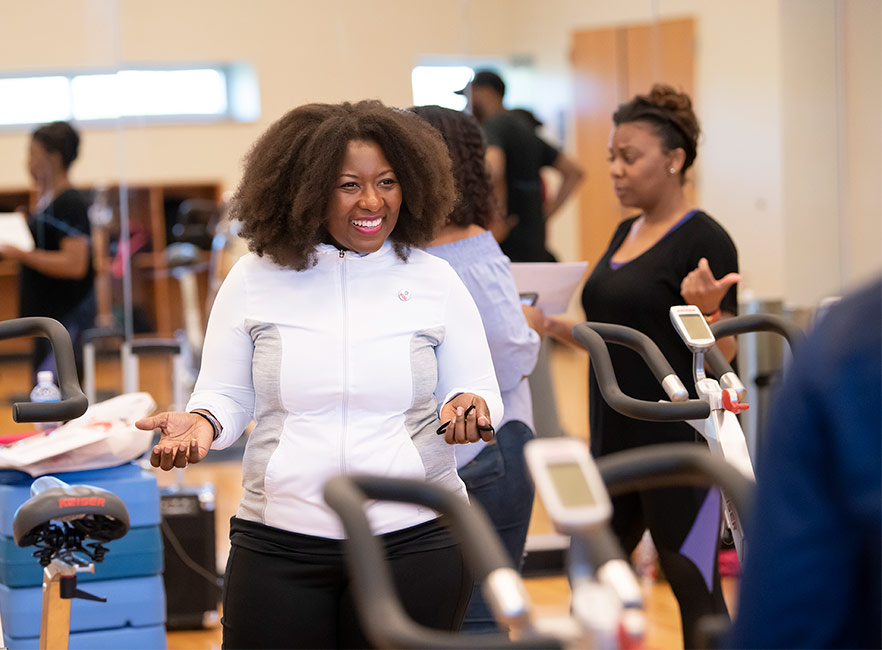Eight questions with ... Dr. Mesia Steed, new Faculty Senate chair

Dr. Mesia Moore Steed, associate professor of cell and molecular biology, is the newest chair of Winston-Salem State University’s (WSSU) Faculty Senate.
Since joining WSSU’s faculty in 2012, Steed has served as a faculty-in-residence, advisor to several student organizations, and worked on numerous university, department and UNC System committees. She is also the chair of the Winston Lake Family YMCA Advisory Board.
Here’s 8 questions with … Dr. Mesia Steed
What do you hope to accomplish in your new role as chair of the Faculty Senate?
As Faculty Senate chair, I will be the clear and consistent voice for our faculty and bring the senate the kind of visibility, credibility, and influence that will help move WSSU forward. There are three areas I will promote: communication, understanding, and collaboration. I am committed to helping build diverse comprehensive teams that will have open and truthful communication; understand each team member’s unique role in order to find common ground; and help the team stack their collective strengths to create more effective campus wide collaborative projects that will help us better address our challenges.
Why did you choose a career in higher education?
Higher education has always been in me – it chose me. For as long as I can remember, I have been a leader, teacher, and servant. I’ve served as president of the youth usher board, a cheerleading team captain and later coach, and undergraduate and graduate president of my sorority. I was the first K-12 minority outreach fellow of the American Physiological Society and a diversity officer for the National Postdoc Association. I’ve been a tutor, adjunct professor and so on. I’m where I am supposed to be.
Biological sciences is one of the most popular majors at WSSU. What are some of the opportunity afforded to students who earn degrees in biology?
Flexibility. Although biology is a fundamental subject for the science and health sectors, it is an even larger springboard into opportunities in law, art, education, government, business and entrepreneurship. Regardless of the career options, biology majors should focus on their overall development by learning the foundation of biology and a range of practical skills such as oral and written communication, critical thinking, teamwork and time management.
Why did you choose to be a faculty-in-residence?
My first two years as a faculty member were exciting, exhausting, and full of eye-mind-heart opening experiences. I quickly adjusted to my new responsibilities, but also witnessed the emotional rollercoaster my students were riding. I was not close enough to understand how to help. I chose to live on campus with my students to serve as an up close and personal role model, academic advisor, tutor and mentor. I was also a sounding board, nurse and chef. I was often called mom instead of Dr. Steed. I gave all I could to help our students learn and be their best selves in and out of the classroom. Through that experience, my teaching, advising, mentoring, and leadership were transformed.
While working and living on campus, is there anything unique that you’ve learned about students?
Nothing unique, but I have my own personal perspective. Our students have greatness in them, and it is our job to challenge that greatness to wake up and take over. From my experience, I saw that students can easily become tired and frustrated, even though they are hungry for knowledge. It’s important that we continuously work together to wake up the greatness in our students, teach them how to prioritize, and keep them informed and motivated.
You teach cycling classes through University Recreation (UREC). How has this class taught you to enjoy the ride even though you’re stationary?
I absolutely love to cycle and would teach from the bike if I could. Teaching cycle has strengthened my connection with students. Things don’t appear as scary when we are sweating and struggling to breath together. Students attend for the workout, but it also helps to relieve stress and is a safe place to talk freely about their fears and frustrations. I’m able to provide care and support while on the bike and help us all move forward.
What are three things people may not know about you?
- I like to sing, paint, write and story tell.
- “Hustle Hard” is the motto I teach, advise and mentor by.
- My loving, intelligent, and patient dog, Lacey, is my shadow.
A lot of the women on campus have a hair crush on you. What is your hair care regimen?
I am natural because two of my previous research students convinced me that I would love my natural hair; they were right. I don’t have a regimen, but I do keep the process simple and cheap. I wash, search for and destroy fairy knots (strands of hair that knot within themselves), and two strand twist every week. My favorite products are Cantu daily moisturizer, grapeseed oil, and Ultra Sheen. Lastly, I pineapple my hair by creating a loose high ponytail at the top of my head to protect the curls.

